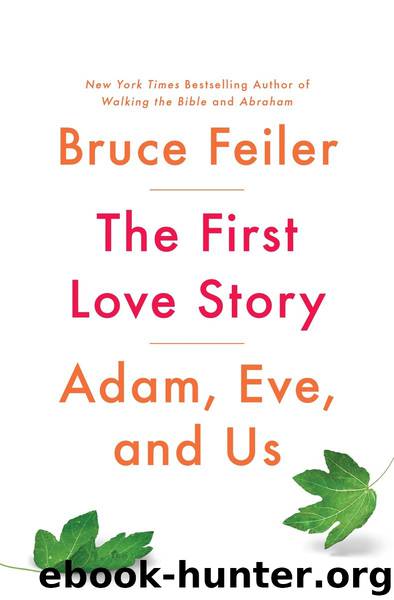The First Love Story by Bruce Feiler

Author:Bruce Feiler
Language: eng
Format: epub
Publisher: Penguin Publishing Group
Published: 2017-02-15T10:49:20+00:00
7
FAMILY AFFAIR
Are We Our Children’s Keepers?
IN DECEMBER 1821, Lord Byron, already one of the more flamboyant and daring Romantic poets, asked his publisher to forward an unsolicited version of his latest manuscript to his friend, the novelist Sir Walter Scott. Byron chose the author of Ivanhoe because of his well-known reputation as a defender of the faith. The purpose of the solicitation was to ask Scott if he would mind if Byron dedicated his new work to him. The work was a medieval-style play entitled Cain, A Mystery, and Byron, who was living in Ravenna at the time, was worried about a backlash over his depiction of the first family—Cain, Abel, Adam, and Eve. In effect, Byron wanted a blurb from Scott to give him cover.
Scott replied promptly, and enthusiastically. “I accept, with feelings of great obligation the flattering proposal of Lord Byron to prefix my name to the very grand and tremendous drama of ‘Cain.’” He went on to say of his younger friend’s work, “I do not know that his Muse has ever taken so lofty a flight,” then added, “He has certainly matched Milton on his own ground.”
Byron was actually part of a miniboomlet in writing about Cain and Abel in early nineteenth-century England. Samuel Taylor Coleridge, Percy Bysshe Shelley, and William Blake all undertook important works about the first sons, their rivalry, and the unsettling relationship between violence and faith. The writings, all of them considered responses in some way to Paradise Lost, were both inventive and, in a world where religion still maintained a strong grip on public discourse, controversial.
Byron was considered the biggest offender. His play opens with Cain refusing to offer prayers to God because of the way his parents were treated in Eden. Seeing an opening, Lucifer steps in and offers to show the disgruntled Cain the future, which is filled with death and destruction. Depressed by what he sees, Cain takes out his frustration on his pious brother, accidentally striking him dead. Comforted by his wife, Cain comes to realize that he is his brother’s keeper and must bring his brother’s sensitive spirit back into the world.
Byron’s play was lambasted for an array of sins, from leaving out God to glorifying a murderer. But the criticism overshadowed what was truly beautiful, even heartbreaking, about the work: the way he brought to life the pain of Cain’s parents in response to their sons’ dispute.
“Who, or what hath done this deed?” Adam asks upon discovering his slain child. “Speak, Cain! and say it was not thou!”
“It was,” cries Eve. “I see it now—he hangs his guilty head, and covers his ferocious eye with hands incarnadine.”
Furious, Eve disowns her own son, “I curse him from my sight for evermore!” Then, in an exclamation anyone with a child can relate to, she moans, “Oh death! death! Why didst thou not take me? . . . Why dost thou not so now?”
One often overlooked aspect of Adam and Eve is that they weren’t just partners, lovers, sinners, and seekers.
Download
This site does not store any files on its server. We only index and link to content provided by other sites. Please contact the content providers to delete copyright contents if any and email us, we'll remove relevant links or contents immediately.
The Five People You Meet in Heaven by Mitch Albom(3550)
The Secret Power of Speaking God's Word by Joyce Meyer(3161)
Real Sex by Lauren F. Winner(3005)
Name Book, The: Over 10,000 Names--Their Meanings, Origins, and Spiritual Significance by Astoria Dorothy(2970)
The Holy Spirit by Billy Graham(2938)
0041152001443424520 .pdf by Unknown(2842)
How The Mind Works by Steven Pinker(2811)
ESV Study Bible by Crossway(2772)
Ancient Worlds by Michael Scott(2678)
Churchill by Paul Johnson(2576)
The Meaning of the Library by unknow(2563)
The ESV Study Bible by Crossway Bibles(2546)
The Gnostic Gospels by Pagels Elaine(2517)
MOSES THE EGYPTIAN by Jan Assmann(2411)
Jesus by Paul Johnson(2351)
City of Stairs by Robert Jackson Bennett(2337)
The Complete Dead Sea Scrolls in English (7th Edition) (Penguin Classics) by Geza Vermes(2269)
The Nativity by Geza Vermes(2224)
Ancient Near Eastern Thought and the Old Testament by John H. Walton(2220)
